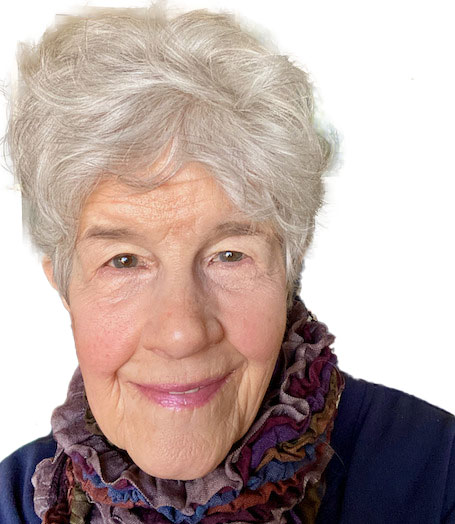I got an email with an excellent question:
Is sensitivity the same as low self-esteem?
The basic answer is no, they are not the same. But there is a longer, deeper answer that I will begin here, and continue in future newsletters. I speak as a highly sensitive person myself. It has taken me most of my life to understand this temperament and value it for its gifts.
Bottom line: being sensitive is a real emotional temperament. And in a real way, I think that the future depends on people like us. We are like the canary in the coal mine.

Do you remember the stories about the miners that took a canary in a cage down into the mine to find out if the air was safe to breathe down there? If the canary died, the miner didn’t go down. The canary pointed the way for them; it ensured their safety.
As you know, it is hard to be so sensitive in a world that doesn’t understand this temperament. When there is no one around you who can reflect your inherent goodness to you, you may grow up thinking that there is something wrong with you. Over time this thinking will lead to low self esteem.
When you have a highly sensitive temperament, you will feel and experience everything that happens around you and to you much more deeply than most people do.
My friend and colleague Dr. Nancy Selfridge describes sensitivity this way:
A sensitive system is a nervous system that has fewer filters in it than is considered the norm. Now these people are rare people. This is a nervous system that seems to have an element of vulnerability to stress and trauma anyway…maybe in the ways that the nervous system tends to be over activated in our particular cultural context.
People need to understand that if we’re talking about a hard-wired way of processing information, this is not psychopathology, and this is something that we would not necessarily want to change.
These are the people who become the spiritual leaders and the medicine men and women and healers in our culture. We need these people!
Elaine Aron, PhD. first introduced the idea of “the highly sensitive person.” She is a therapist who is highly sensitive herself, and in her practice she kept noticing that sensitive people seemed more susceptible to developing emotional challenges than people who were less acutely aware of their surroundings.
According to her, if you find you are a highly sensitive person, or your child is, then you need to be aware of the following points:
- The trait of being sensitive is normal–it is inherited by 15 to 20% of the population, and indeed the same percentage seems to be present in all higher animals.
- Being an HSP means your nervous system is more sensitive to subtleties. Your sight, hearing, and sense of smell are not necessarily keener (although they may be). But your brain processes information and reflects on it more deeply.
- Being an HSP also means that you are more easily overstimulated, stressed out, overwhelmed.
- This trait is not something new – it has been mislabeled as shyness (not an inherited trait), introversion (30% of HSPs are actually extraverts), inhibition, fearfulness, and the like. HSPs can be these, but none of these are the fundamental trait they have inherited.
- The reason for these negative misnomers and general lack of research on the subject is that, in this culture, being tough and outgoing is the preferred or ideal personality – not high sensitivity (therefore, in the past the research focus has been on sensitivity’s potential negative impact on sociability and boldness, not the phenomenon itself or its purpose).
- This cultural bias (see above) affects HSPs as much as their trait affects them. Even those who loved you probably told you, “don’t be so sensitive,” making you feel abnormal when in fact you could do nothing about it, and you are not abnormal at all.
From Elaine Aron’s website, www.HSPerson.com
The Highly Sensitive Temperament is called the “Idealist Healer” (INFP), according to a well known personality type test. Here are some characteristic of highly sensitive people that emerge from this survey, using the Meyers Briggs model, adapted by David Keirsey in his book Please Understand Me II.
I have organized Keirsey’s list into “Challenges,” and “Blessings.”

The challenges of being sensitive:
Often had an unhappy childhood
May have been raised in a practical, industrious, social family
Didn’t conform to parental expectations
Often feel isolated, “like an alien”
See themselves as ugly ducklings
Appear reserved and shy
Rich fantasy world as a child, may have been discouraged or punished for this by parents
Wish to please, try to hide their differences
Believe and are told that their sensitivity is bad
Drawn toward purity but continuously self critical
Self-sacrificing to an extreme
Keep this inner struggle hidden from others
The Blessings of being sensitive:
We are keenly aware of and affected by beauty in art, music and nature
We are poetic and abstract in thought and speech
We are cooperative, diplomatic and empathic
We hunger for deep and meaningful relationships
We value personal growth, authenticity and integrity
We are internally deeply caring and deeply committed to the positive and the good
We have a strong personal morality, and feel a mission to bring peace to the world
Often we make extraordinary sacrifices for someone or something we believe in
Imagination and evolution are our goal, and we seek unity
Some examples of highly sensitive people from history:
Homer, Virgin Mary, Hans Christian Andersen, Princess Diana, Gandhi, Shakespeare
Here are the bare bones of the story about being highly sensitive:
- Growing up in a family and a culture that does not understand you can lead to an accumulation of painful experiences.
- Given all this, it is likely that you will grow up with a distorted beliefs about your identity: ”There must be something wrong with me.”
- Telling this thought repeatedly to yourself leads to physical and emotional responses.
- You may feel sad, angry, fearful, anxious, shameful, guilty. If it is not safe or appropriate to express these feelings, they become “stuffed” inside, and over time can show up as physical symptoms and illness.
- With tapping, and other healing modalities, you can sense into the deeper intention of this physical and emotional pain. Ask inside, “If these tears, or this nausea, or this tightness in my chest or throat, or this heaviness in my heart, or these symptoms had a message for me, what would it be?”
- I believe that the message is always a variant of “I deserve better!” It is as if our caged spirit is screaming, using emotions and body symptoms, to be set free.
- So, we might ask, “What is the deeper Truth of me? If I let all those old painful stories and beliefs fall away, who am I underneath all that?”
- When we have a sense of our deeper truth, we can begin to look into our lives for evidence of that truth expressing itself. And once we start looking for it, we can see it everywhere. It has been there in us always.
- Learning the truth about ourselves, knowing that it is our right to feel good and be happy, we can begin a lifelong process of turning ourselves in the direction of peace and ease and fun and joy.
- We can care about how we feel! In caring for my Self I am caring for my Spirit. If I don’t do that, no one else will.

I have been asked so many times, “How can I tap to get rid of my sensitivity?”
I think that this question carries us in the wrong direction altogether. We think of sensitivity as something that needs to be beat up until it is gone , so that then we will be OK, and normal, and “fit in.”
Use your sensitivity and your creativity to find ways to reframe negative thoughts about being sensitive into gifts.
Tap to acknowledge being sensitive. Tap to reframe what seems like problems into gifts:
Feeling so deeply is the gift of profound awareness of sensations.
Your wish to please arises from your mission to bring peace.
Honor your capacity for a deep sense of connection.
Celebrate your wonderful vision of possibilities, and your love of having things look and feel and fit right.
Appreciate your beautiful idealism, your trust in goodness.
Sprinkle your tapping sessions liberally with some variation of these words:
Even though I don’t see how I could reframe my sensitive response to this event positively, I am open to seeing it differently….and I’m open to seeing purpose and wisdom in what happened and in my own and others’ response….and I deeply and completely love and accept myself, no matter what.
I think that highly sensitive people are pointing the way for all of humanity, toward learning a more graceful way of living. In some way we may not quite understand yet, the world has called each of us to be here, to offer the healing energy that is released through our our transformational journey.
Let your natural self esteem rise free from the cage that it has been held in, to fly free at last! We are all in this together. The self esteem that you discover in yourself benefits all of us.
With my love and blessings to you,
Rue
For more information about tapping and sensitivity, see my book, This is Where I Stand: The Power and Gift of Being Sensitive. It is really a love letter…
You can find it here:
https://www.intuitivementoring.com/books-dvds/this-is-where-i-stand/

